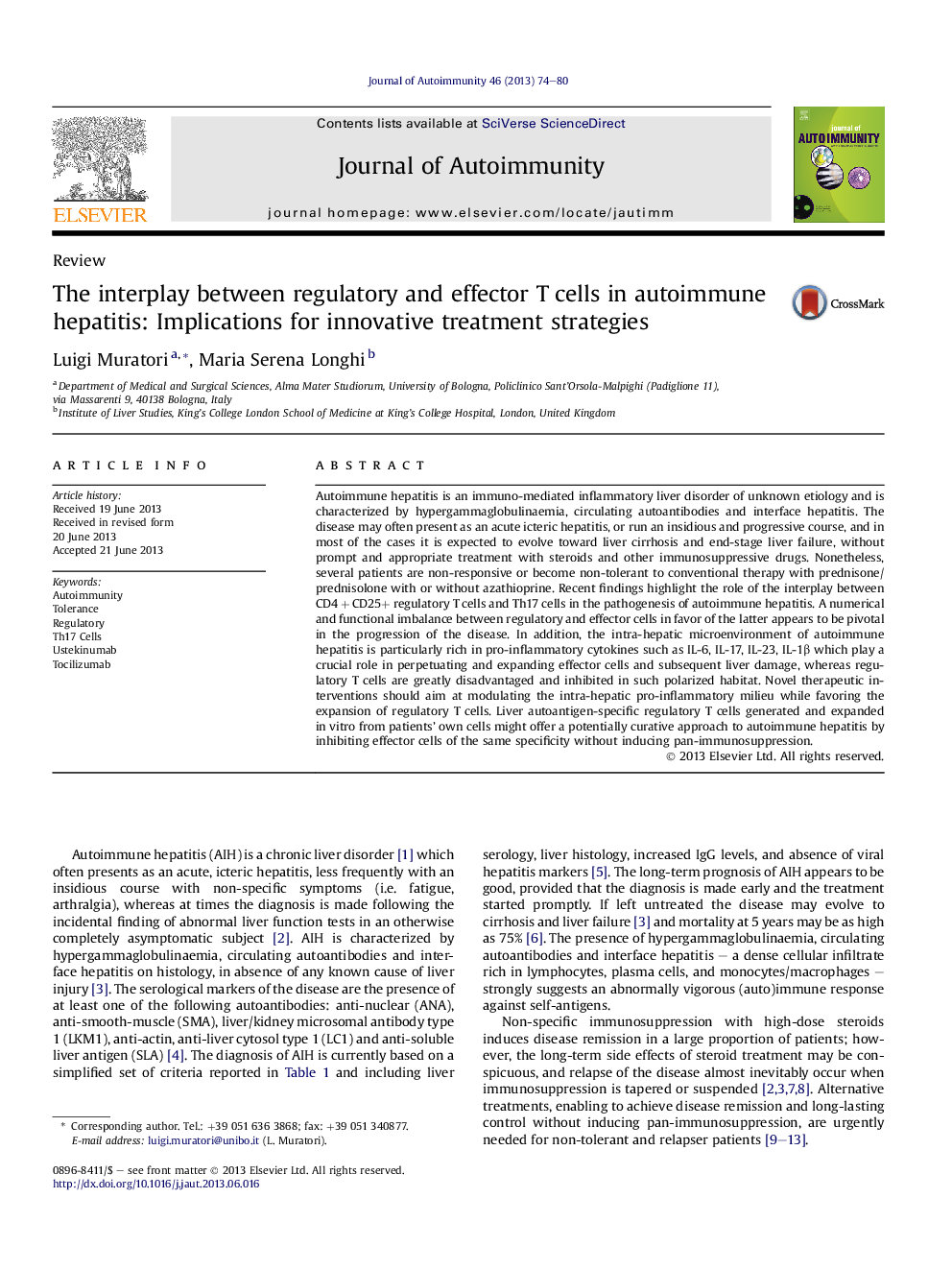| Article ID | Journal | Published Year | Pages | File Type |
|---|---|---|---|---|
| 6119308 | Journal of Autoimmunity | 2013 | 7 Pages |
Abstract
Autoimmune hepatitis is an immuno-mediated inflammatory liver disorder of unknown etiology and is characterized by hypergammaglobulinaemia, circulating autoantibodies and interface hepatitis. The disease may often present as an acute icteric hepatitis, or run an insidious and progressive course, and in most of the cases it is expected to evolve toward liver cirrhosis and end-stage liver failure, without prompt and appropriate treatment with steroids and other immunosuppressive drugs. Nonetheless, several patients are non-responsive or become non-tolerant to conventional therapy with prednisone/prednisolone with or without azathioprine. Recent findings highlight the role of the interplay between CD4 + CD25+ regulatory T cells and Th17 cells in the pathogenesis of autoimmune hepatitis. A numerical and functional imbalance between regulatory and effector cells in favor of the latter appears to be pivotal in the progression of the disease. In addition, the intra-hepatic microenvironment of autoimmune hepatitis is particularly rich in pro-inflammatory cytokines such as IL-6, IL-17, IL-23, IL-1β which play a crucial role in perpetuating and expanding effector cells and subsequent liver damage, whereas regulatory T cells are greatly disadvantaged and inhibited in such polarized habitat. Novel therapeutic interventions should aim at modulating the intra-hepatic pro-inflammatory milieu while favoring the expansion of regulatory T cells. Liver autoantigen-specific regulatory T cells generated and expanded in vitro from patients' own cells might offer a potentially curative approach to autoimmune hepatitis by inhibiting effector cells of the same specificity without inducing pan-immunosuppression.
Related Topics
Life Sciences
Immunology and Microbiology
Immunology
Authors
Luigi Muratori, Maria Serena Longhi,
